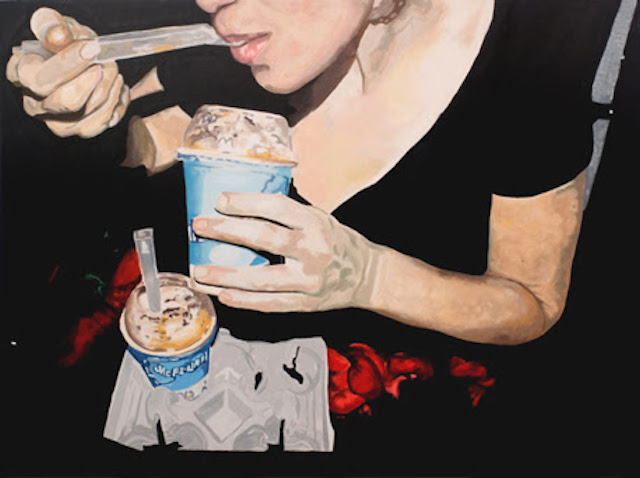
“She thought she would die of shame. Instead, it was the shame that died.” ~D. H. Lawrence, Lady Chatterly’s Lover
~
I just hung up the phone following a powerfully transformative coaching session with my client—a vibrant, super-smart woman who’s felt betrayed by her body her entire life.
She wants more than anything to recapture her youthful vitality, cultivate genuine self-love, and embrace her body wholeheartedly.
As a girl, she loved to dance, play softball, and float paper boats in rain puddles.
But gradually, her whole being shut down. She began to suffer mysterious illnesses, random accidents, and 50 pounds of excess weight.
She told me that at age seven, for reasons unclear to her, her father sent her to her room without supper. She lay in the dark, crying and hungry, wishing only that Dad would come soothe her.
Dad never came.
As she described it, “Eventually my mother came in, but I was past caring. I wasn’t the same. No supper—just darkness and tears. What could a seven-year-old possibly do to warrant such a punishment?”
In the midst of processing that trauma with her, a lightning bolt of intuition shot through me. I asked her:
“Is it possible that you’ve been punishing your body the same way your parents punished you? Saying things to yourself like, ‘You’re bad.’ ‘Go to your room.’ ‘Go away.’ Do you think…?”
She gasped. Then silence.
“I. Am. Blown. Away,” she said softly.
I guided her through a meditation intended to help her bring her body out of that dark bedroom, turn on the light, and say, “I love you. I’m here for you. I want to hear what you’ve been trying to tell me.”
Who to forgive?
Those of us who struggle with food may have people and circumstances in our lives that have indeed harmed us.
But no matter how deep those wounds run, our first, last, and most abiding forgiveness is to ourselves.
Freeing ourselves from our compulsive behaviors is not about white-knuckling our way through punitive abstinence, eating lettuce when we really want to face-plant into an ice cream sundae.
It’s about releasing everything we have made those behaviors mean about us.
It’s not about going on the next Grapefruit Diet.
It’s about letting go of being someone who needs to diet to begin with.
Finding our way back to sanity
As women, we have internalized the neuroses of our ancestors and endured our culture’s degradation of our very beings.
We felt our mothers’ projected shame when she put us on a diet at age eight or when she told us how unladylike we were at the meal table.
We absorbed Grandpa’s misogyny in every salacious remark he made about girls’ bodies, including our own.
We cringed at the violence of skinny-girl images paraded before us, knowing that our big-boned frame could never shrink down to that impossible size.
And we reveled in the desperate pleasure of chips, cookies, chocolate, ice cream—our best and only friends when all else failed.
Having few reference points outside of that insanity, we drove the madness inward and made it about us.
We confused our food struggle with our value as human beings. From that confusion, we forged a fragmented identity of ourselves as unworthy, flawed, and condemned.
Forgiveness, then, begins with detaching ourselves from our own insanity and the madness of those around us.
With the right guidance and support, we realize that Mother’s shaming was more about her insecurity than the size of our own bodies.
We get that Grandpa would have made those rude remarks about any young woman, and it had nothing to do with us.
We recognize that our true beauty emanates naturally from the goodness of our being and has nothing to do with our dress size.
Once my client saw how she had internalized her parents’ brutal perfectionism, she could drop it like a hot rock and embrace the self-love that had been patiently waiting for her.
The fruits of self-forgiveness
Forgiveness entails saying these truths to ourselves and having them said to us, over and over, until they take root in our cell tissue:
“Your struggles with food are not your fault. They have been your best way of loving yourself in difficult circumstances.”
“None of it was ever about you.”
“There is nothing wrong with you or bad about you.”
“You are an amazing, beautiful woman exactly as you are.”
These truths are the stepping-stones by which the broken fragments of our soul come tiptoeing home to stay.
We begin re-collecting ourselves, remembering ourselves, and in so doing, we realize deep in our being that nothing was ever out of place.
All of it needed to happen exactly this way to bring us exactly here.
Where the food addiction was once our worst enemy, we see it now as the path of discovering the goodness within us that was never tarnished to begin with.
The joy of such realization is indestructible.
~
Author: Marcella Friel
Image: Wikimedia
Editor: Callie Rushton






Read 1 comment and reply